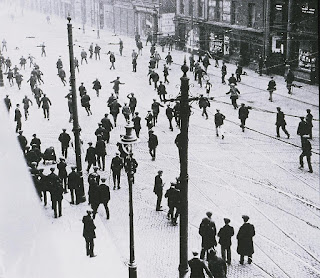by Deborah Swift
I have been writing for quite a number of years now and in that time the publishing landscape has changed enormously. I am now reliably informed by Google that there are 2,700 books published every single day, and against that tsunami of books, my sitting down at my desk every day to write another can seem rather pointless. Why would anyone need even one more book?
When I first began writing, I was inspired by the whole craft of writing. I got myself a shelf full of books which told me about plot, structure, research, and other craft skills. Most of these books are now something I rarely look at as they offer the same old advice re-packaged. So where is a seasoned writer to find the inspiration to carry on writing?
Here are some online ideas I find really useful when I am particularly jaded. They are all free, and won't cost you a thing.
First up - there is always research. Research is my life blood and the interesting facts I discover whilst I'm doing it are not only what keeps me engaged, but also enables me to breathe a semblance of life into my books.
Visual Feasts - Go on a live tour.
There are online walking tours to just about everywhere now. How about one I've just enjoyed? It takes about 45 minutes and is an ideal visual orientation and overview of the subject I'm researching. You can tip the tour guide if you want but its not obligatory.
Jewish History in AmsterdamThere are offerings on this site from every corner of the world -
London -Way of Death is about the execution sites and the Necropolis of Old London.
For a longer tour you could sample this from a different company, which has a different approach more like a lecture tour, and more in depth information - it lasts an hour and a half .
Pin Back Your Ears - Listen to a podcast by another historical novelist
I love to hear other writers offer me their pearls of wisdom, and hearing someone else talk about their own difficulties helps me to feel I'm not alone in tackling my own big project.
Here are some good ones to get you started.
The Write Show -
Writing Historical Fiction about a little known figure (Mary Magdalene) and how the writer handled contradictions in her sources.
Art in Fiction - Writers (most are historical novelists) talk about artists, writers and performers that feature in their books and how they brought them to life.
Dig a bit Deeper - Fire up your brain
The question most historical novelists are tired of answering gets a breath of fresh air in this
in-depth article in The Literary Hub by Caitlin Horrocks.
Take a Tip from the Experts - You're never too old to learn
However expert you are, a novel is always a new journey. Of course there are many classes and courses that will take your money, but if you're just a bit jaded and need some free pep, then here at the
National Centre for Writing, there are free soundbites, classes and courses including ones by Sarah Perry and Nicola Upson. Want to write a convincing fight scene? Try these tips from the
New York Editors Blog.
Mooch round a Museum - without leaving your chair
Tired of your view? How about visiting the
Frick Collection in New York? Expect to see Old Masters, decorative arts, and European sculptures in this former residence turned art museum.
Or how about
Blenheim Palace - wander three hundred years of history and the sumptuous gilded rooms with only a mouse. My personal favourite is the
Rijksmuseum, home of Dutch Masters and a visually stunning website.
The Beauty of the Book - can't beat the real world
Of course one of the obvious and best ways to get inspired (and yes I deliberately left it until last) is to read. I love my local secondhand bookshop. In it I can browse openings of dozens of pre-read novels for a flavour of the writer. Other writers' voices are not like mine, and I love to see what the differences are and how they construct their stories. There are also old books - the solid language of Victoriana, and the hip lingo of the 1970's.
As most of my life as a writer is conducted online or via the computer, it is great to get back to the real world of books. Weirdly, no matter how obscure my subject matter I can usually find something of interest in a second hand bookshop. It encourages the cross-fertilization of ideas because there are so many random books close to each other - many of which are not the bestsellers touted in every other bookshop. Nearly all my non-fiction research books are actual books rather than ebooks, and often second-hand. It is much easier to find stuff again in a real book, and I often read the book more than once and need to put post-its on them with my notes about why that extract is useful.
Struggling with a title? Your secondhand bookshop will provide lots of ideas. Need to think of a blurb? Again, the second-hand bookshop will give you back-cover ideas culled from the last fifty years at least.
Here's my local bookshop, Carnforth Books. I'm glad to give them a shout out with their thousands of second hand (and new) books,
Hope you found this post useful, and I'd be glad of any other ideas to keep my nose to the grindstone. And no, it's not procrastination, honest.
You can find my latest book, a biographical novel of Renaissance poisoner Giulia Tofana,
here, and my website for more exploring
here.














